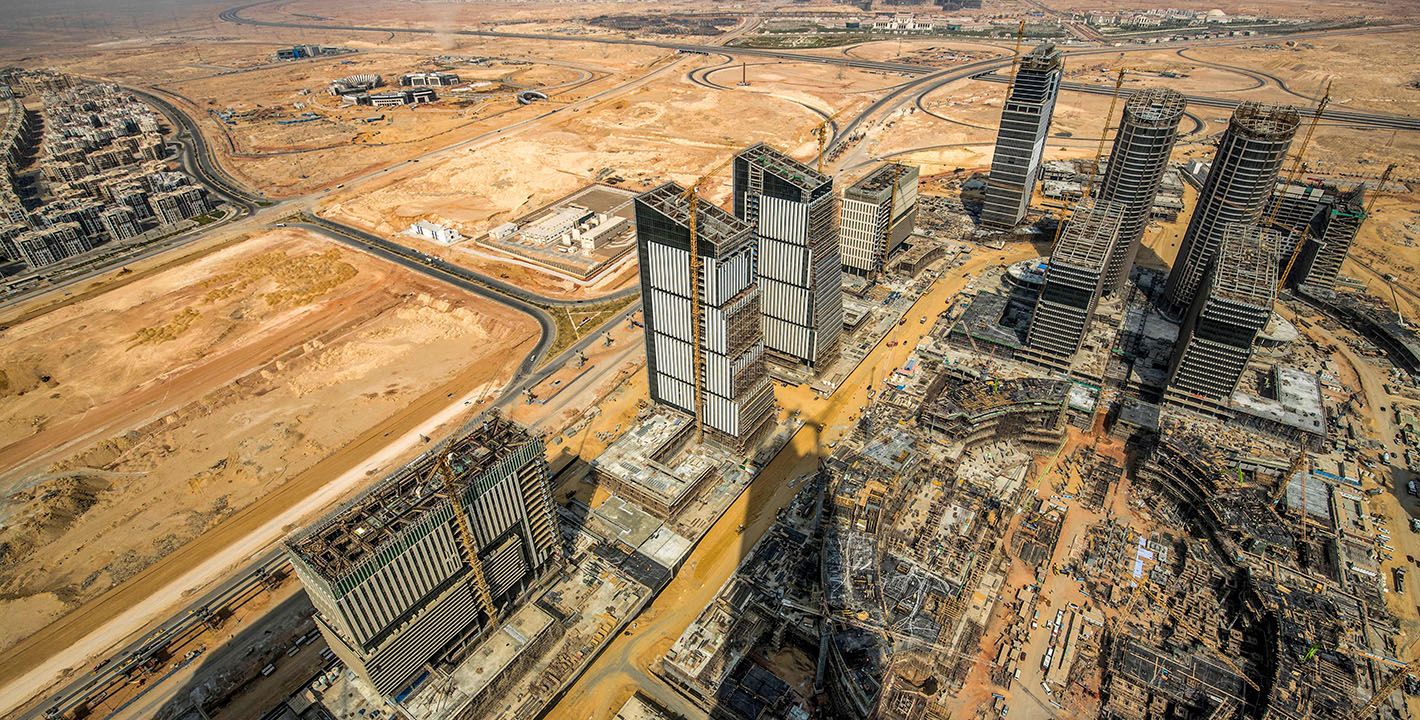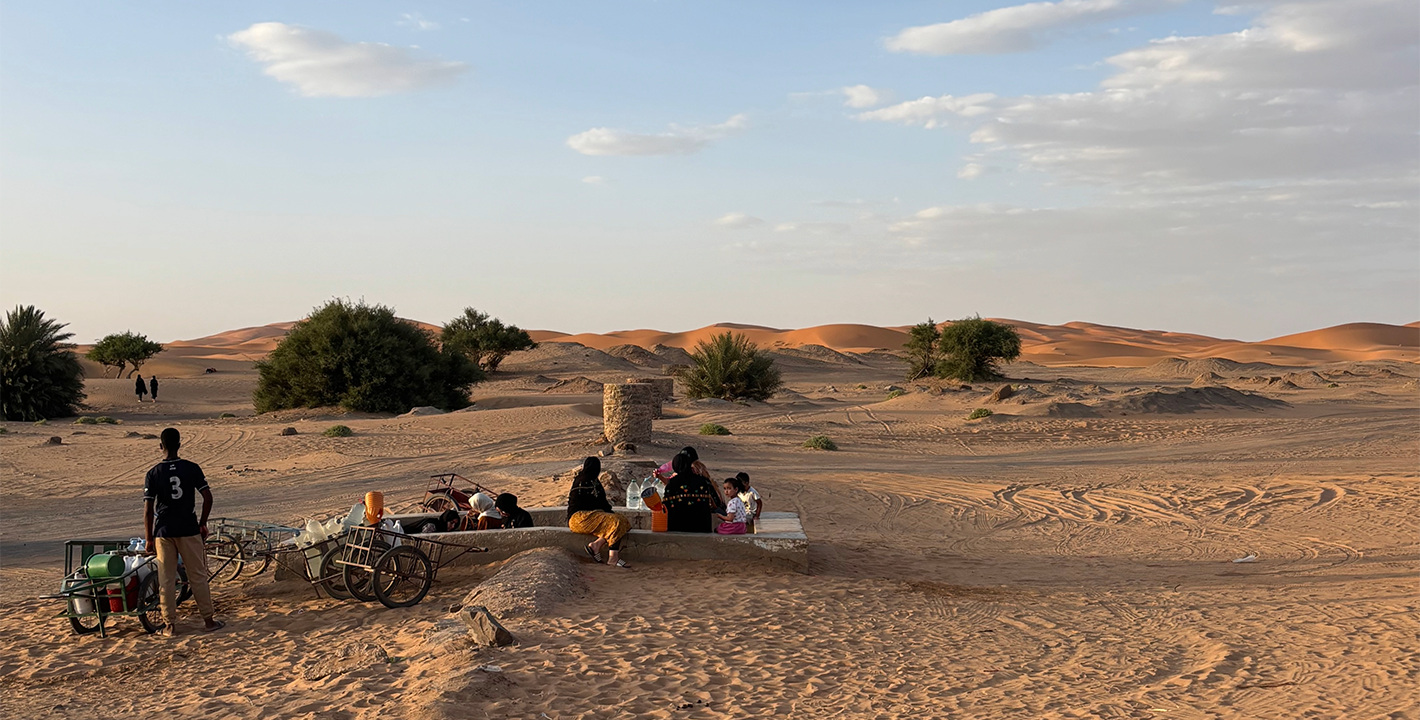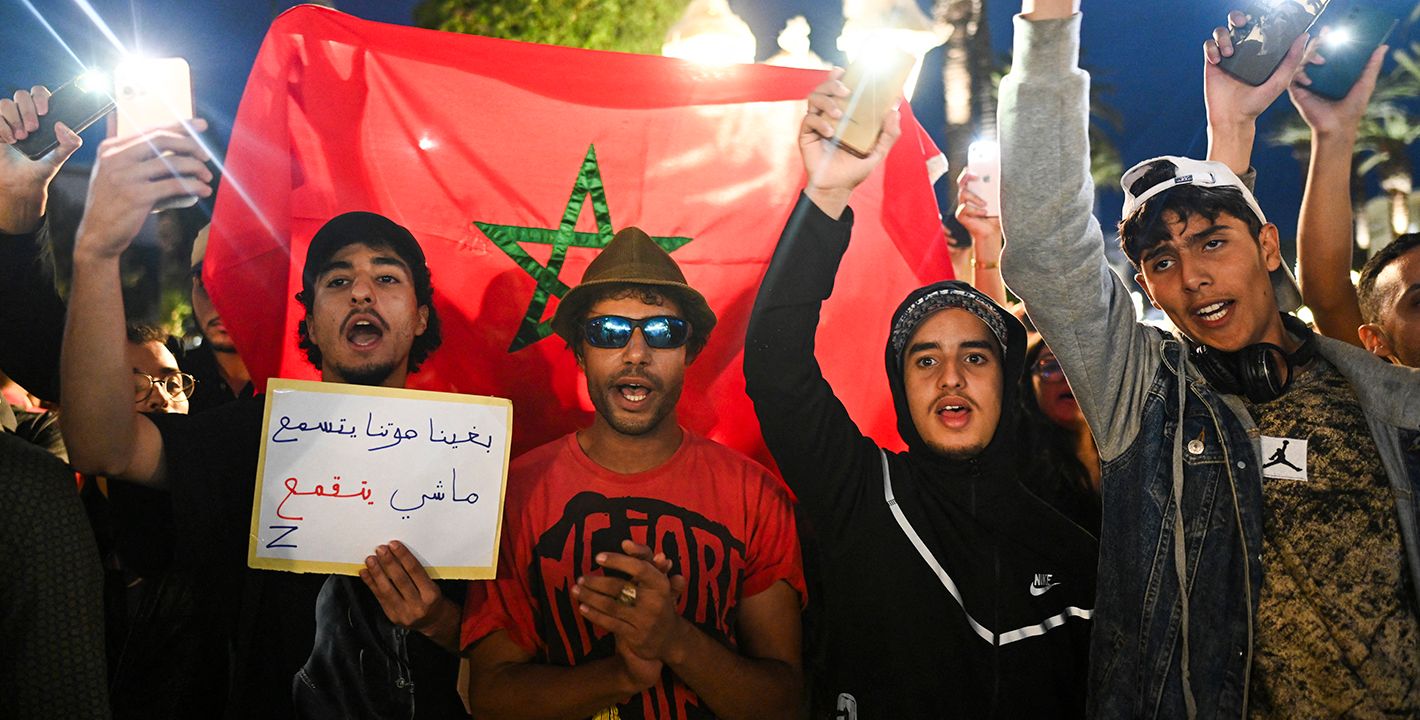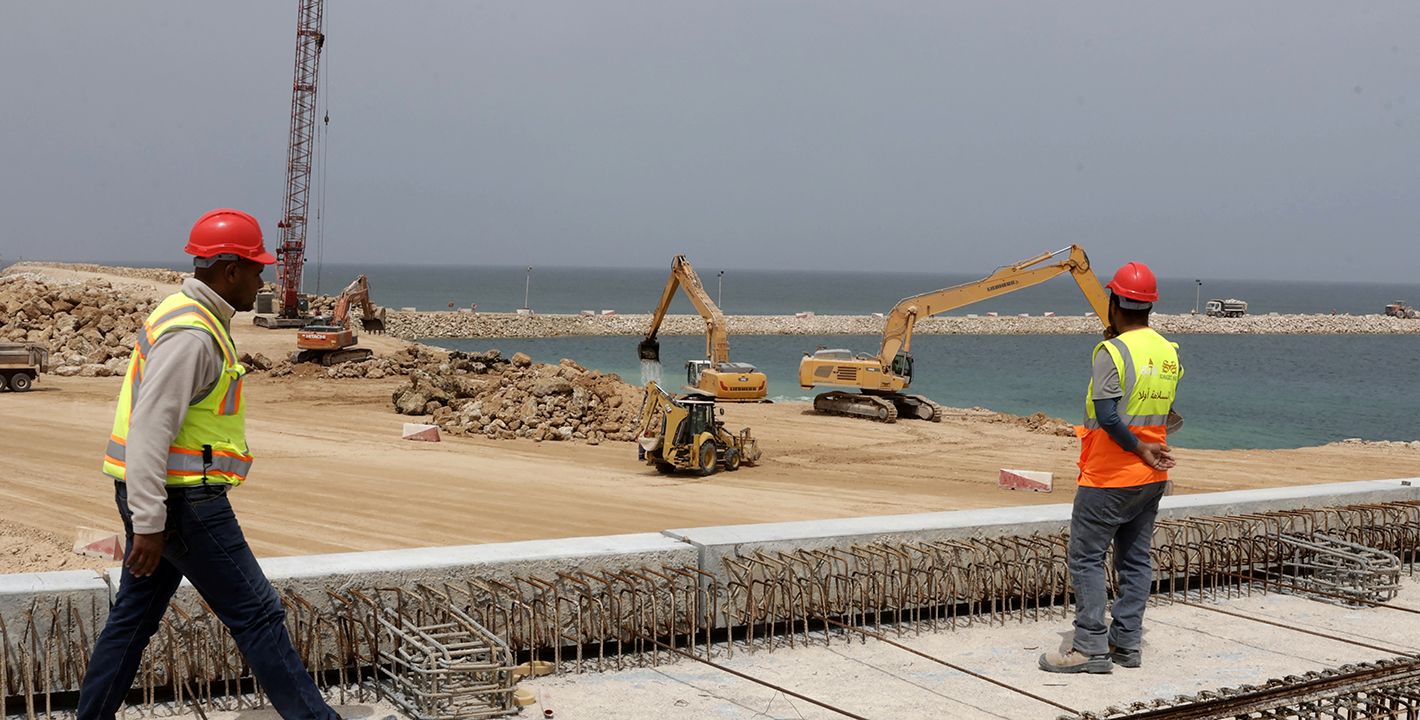Intissar Fakir
{
"authors": [
"Intissar Fakir"
],
"type": "commentary",
"blog": "Diwan",
"centerAffiliationAll": "dc",
"centers": [
"Carnegie Endowment for International Peace",
"Malcolm H. Kerr Carnegie Middle East Center"
],
"collections": [
"Coronavirus"
],
"englishNewsletterAll": "menaTransitions",
"nonEnglishNewsletterAll": "",
"primaryCenter": "Malcolm H. Kerr Carnegie Middle East Center",
"programAffiliation": "MEP",
"programs": [
"Middle East"
],
"projects": [],
"regions": [
"North Africa",
"Algeria",
"Morocco",
"Tunisia",
"Maghreb"
],
"topics": []
}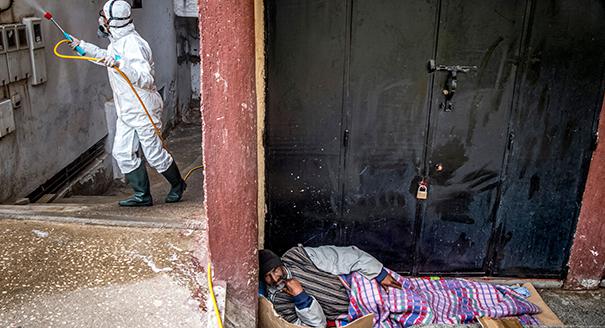
Source: Getty
A Misery Dividend for Leaders in the Maghreb?
Covid-19 may have given North African governments a respite from protests, but this is unlikely to last long.
In the short term, the Covid-19 pandemic is likely to provide the governments of Morocco, Algeria, and Tunisia with a respite from political contestation and mobilization. They have all struggled to varying degrees recently with popular dissent and challenges to their legitimacy. But in the long run, as each grapple with the economic and political aftershocks of the virus, the same questions of credibility and efficiency are likely to come back with renewed vigor.
The number of confirmed Covid-19 cases has been limited in North Africa, despite the region’s proximity to Europe. As of March 20, according to the Johns Hopkins Coronavirus Resource Center, Morocco had 77 recorded cases, Algeria 90, and Tunisia 54. Recognizing the vulnerability of their strained healthcare systems, the governments in the three countries responded early and aggressively to the new situation. They sealed their borders, limited social movement, and urged citizens to practice social confinement. All have closed down public spaces, including educational institutions, places of worship, cafes, and public transport. They have also asked non-essential public-sector workers to stay home.
All three countries fear that a pandemic would overwhelm them, as they lack the infrastructure or resources, or both, to respond to an outbreak. In Algeria, there are only 1.9 hospital beds per 1,000 people, compared to a global average of 2.7. In Morocco the figure is 1.1. And in Tunisia, which is closest to the global average, the number is 2.3. In comparison, it is 2.9 in the United States and 13.4 in Japan. While North African countries boast younger populations potentially less affected by the disease, 6.7 percent of the population in Algeria is over 65. In Morocco it is 7.1 percent. And in Tunisia it is 8.8 percent.
With regard to mitigating the economic impacts of Covid-19, responses have varied. Looking at border closures alone, Morocco and Tunisia must grapple with the significant economic losses likely to result from a cratering tourism sector. In Morocco and Tunisia, tourism contributes 19 percent and 15.9 percent to GDP, respectively.
The Moroccan government has created a fund to address the crisis. The fund was initially 10 billion dirhams, or $1 billion, mostly to supplement the needs of the healthcare sector. Given its limited budget, the state encouraged donations from businesses and private citizens, which helped raise the sum to 27 billion dirhams, roughly $2.7 billion. Moroccans were heartened and incredulous at the speed and generosity of the donations. The state has indicated it would support exposed sectors and has begun putting in place mechanisms to compensate some of the most vulnerable and affected citizens.
Algeria has taken similar steps, providing paid leave for mothers, preventing price gouging, and speeding up the importation of foodstuffs to avoid shortages. Algeria is something of an outlier in that its energy-dominated economy has never depended on tourism or manufacturing.
In Tunisia, the government put in place a fund through public donations to combat the virus. The fund has so far brought in around 4 million dinars, or $1.36 million. On March 21, Tunisian Prime Minister Elias Fakhfakh announced a number of economic measures and an aid package to struggling businesses and industries. But the country’s economic challenges, with limited economic growth, high unemployment, high public-sector expenditures, and low GDP growth, make the strain of Covid-19 even greater to bear. Tunisia is bracing for an unprecedented hit.
Painful economic fallout will once again taint confidence in these governments. Each of the three countries has faced sustained political contestation in recent years. This has largely been in the form of protests calling for a new political system in Algeria and more accountability in Morocco and Tunisia. All have been driven by the socioeconomic grievances that have shaped the region since, and even before, 2011. However, in a time of great uncertainty, as today, fear has pushed people to accept existing political structures as a source of certainty and strength, creating a sense of solidarity that has given governments a respite. It has deflated the opposition and limited the public’s desire to push for change.
As the aftereffects of the Covid-19 pandemic become clearer, they are likely to bring to the fore the policy failures that made the North African nations so fragile and susceptible to the virus in the first place. Economic mismanagement and underinvestment in infrastructure and human development have resulted in systems characterized by inequality and social precariousness. The governments of the three countries might be able to reinvent themselves in the short term, but beyond that the consequences of their errors are potentially destabilizing.
About the Author

Former Fellow, Middle East Program, Editor in Chief, Sada
Intissar Fakir was a fellow and editor in chief of Sada in Carnegie’s Middle East Program.
- A Conflict That Time ForgotCommentary
- Interview with Moroccan Human Rights Activist Maâti MonjibCommentary
Maâti Monjib, Intissar Fakir
Recent Work
Carnegie does not take institutional positions on public policy issues; the views represented herein are those of the author(s) and do not necessarily reflect the views of Carnegie, its staff, or its trustees.
More Work from Diwan
- When Football Is More Than FootballCommentary
The recent African Cup of Nations tournament in Morocco touched on issues that largely transcended the sport.
Issam Kayssi, Yasmine Zarhloule
- Has Sisi Found a Competent Military Entrepreneur?Commentary
Mustaqbal Misr has expanded its portfolio with remarkable speed, but a lack of transparency remains.
Yezid Sayigh
- Women, Water, and Adaptation in Ait KhabbashCommentary
The burden of environmental degradation is felt not only through physical labor but also emotional and social loss.
Yasmine Zarhloule, Ella Williams
- Understanding Morocco’s GenZ UprisingCommentary
The country’s youthful protest movement is seeking economic improvement, social justice, and just a little hope.
Yasmine Zarhloule
- Between the Sahel and the MaghrebCommentary
The Moroccan-Algerian rivalry is playing itself out in ties with Burkina Faso, Niger, and Mali.
Yasmine Zarhloule




